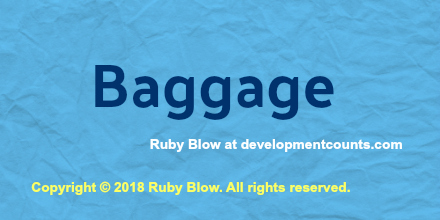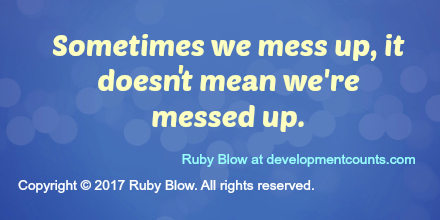The Gift of Therapy
One of my favorite writings is Irvin Yalom’s brief chapter (2 pages) in the book “The Gift of Therapy: An Open Letter to a New Generation of Therapists and their Patients.” Chapter 34 is titled “On taking patients (clients) further than you’ve gone.”
On Taking People Further Than You’ve Gone!
In this chapter, Yalom talks about the fact that in the midst of our work we will encounter clients (customers, colleagues) whose problems or challenges reflect our own struggles. In some cases, they will have already advanced further than us or will do so in the course of our working relationship with one another; their personal and/or professional development or accomplishments will exceed ours.
This is an inevitable and desirable outcome. When I encounter these circumstances (a client exceeding my development) it tests my capacity for genuine presence and authenticity. It brings up questions like:
- Do I feel threatened? If so, why?
- Can I help this person?
- Will I be able to support them in their journey?
- Do they need to work with someone else?
- What can I offer them right now?
- What, if any, characteristics do I need to improve/grow within myself?
- Has my client noticed that they exceed me in this area?
- Is it or is not helpful for them to see that I don’t know…what they know…or haven’t achieved what they have achieved and so on…
To answer a few of these questions:
Am I Feeling Threatened?
My intent is to watch any part of me that shows up feeling threatened by someone’s own advancement. After all, the goal in my work is to support others in becoming or uncovering their best selves and reach their highest potential (a humanistic approach to therapy).
- Every step a person takes toward that goal should be a shared celebration.
- A healthy relational dynamic requires that level of support, after all the goal is to help, not to hurt.
Do I Need to Grow?
The answer to the question “Do I need to grow?” is always “Yes.” This is not to say that I can never be content in my personal and professional identity. It is only to say that if my core values include personal development and professional development… I should seek to enhance my field of knowledge and my depth of character.
- My own growth is not a precondition to helping others, as is often believed.
- Yes, it is helpful and essential for practicing basic counseling skills; however we can help clients go further than we’ve gone, even if we have not conquered that particular challenge ourselves.
What if My Client Notices My Short Coming(s)?
This is a tough one for the therapist who is comfortable behind their relative anonymity. But the truth is that there is nothing wrong with a client noticing you are not “perfect” and don’t “know it all.” In fact there is everything right with it.
- After all “if” we aren’t perfect – which we of course are not – we can be real; and human; and fallible and still be worthy of giving and receiving connection and being seen for who we really are.
- After all being liked, understood, or valued for your false self is of no true benefit.
Be a Human!
Everyone…and I mean everyone, regardless of your field of practice, benefits from sharing mutual humanity.
- Be a human Boss!
- Be a human Leader!
- Be a human Teacher!
- Be a human Therapist!
- Be a human Entrepreneur!
- Be a human Spouse/Partner!
Be human by releasing the need for so much judgment.
Release the need for so frequently assigning “right & wrong.”
Save the judgments and the assigning of responsibility for the big stuff; not the day-to-day picking at one another that people sometimes inflict through an unconscious process of “I’m not feeling powerful right now, so I’m going to practice feeling powerful by criticizing you.”
Being human means accepting imperfection while valuing personal development and responsibility. It’s an interesting combination of accepting yourself right now (flaws and all), knowing you need to grow but not being overly critical toward yourself (harming your self concept and ruining any chance for self acceptance).
Along the way as part of being human, you will have regret, guilt, shame, embarrassment and sometimes you may want to beat your self up (figuratively speaking) as a result.
If we want clients to learn to accept themselves…we have to accept ourselves and be “that” example. In essence, we must say, “Please go further than I’ve gone; I’m honored to witness your success!”
Copyright © 2016 Ruby Blow. All rights reserved.
Share your thoughts on Linkedin, Facebook, Twitter





